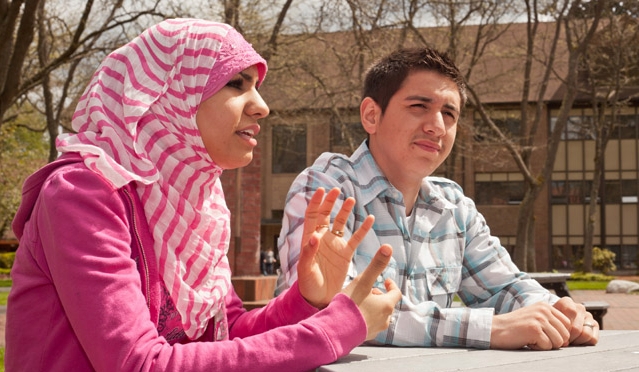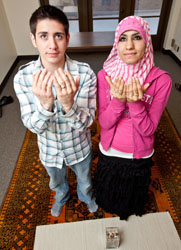
Bashair Alazadi ’13 and Carlos Sandoval ’13 look forward to talking about the perceptions and the realities with the Muslim club. (Photo by John Froschauer)
Engaging faith: A Muslim Student’s Perspective
The first question that Bashair Alazadi ’13 gets from fellow students usually is framed like this: “Do you really want to wear a hijab, or is your husband making you wear it?”Or some variation thereof. But the real answer: It’s a choice for her, a declaration of modesty, and also to be taken seriously as a woman, student and professional.
“I really think it is important to start a club, there is a lot of misinformation about Islam,” said Alazadi. “Our goal is to spread information, not really to convert anyone with this group.”
Both see the 10th anniversary of 9-11, and the death of the Osama Bin Laden this year, as a chance to move the conversation about Islam and what it means to be a Muslim beyond stereotypes and the attack.

Bashair Alazadi ’13 and Carlos Sandoval ’13i in PLU’s Reflection Room. (Photo by John Froschauer)
“I had to point out to my mother that the Virgin Mary is always wearing a head covering,” he said.
Back to the hijab question. Alazadi said that some of her Muslim friends wear a hijab, some don’t. The Koran stresses modesty, not a veil, she said.
“That’s a question that’s between each individual and God,” she said.


